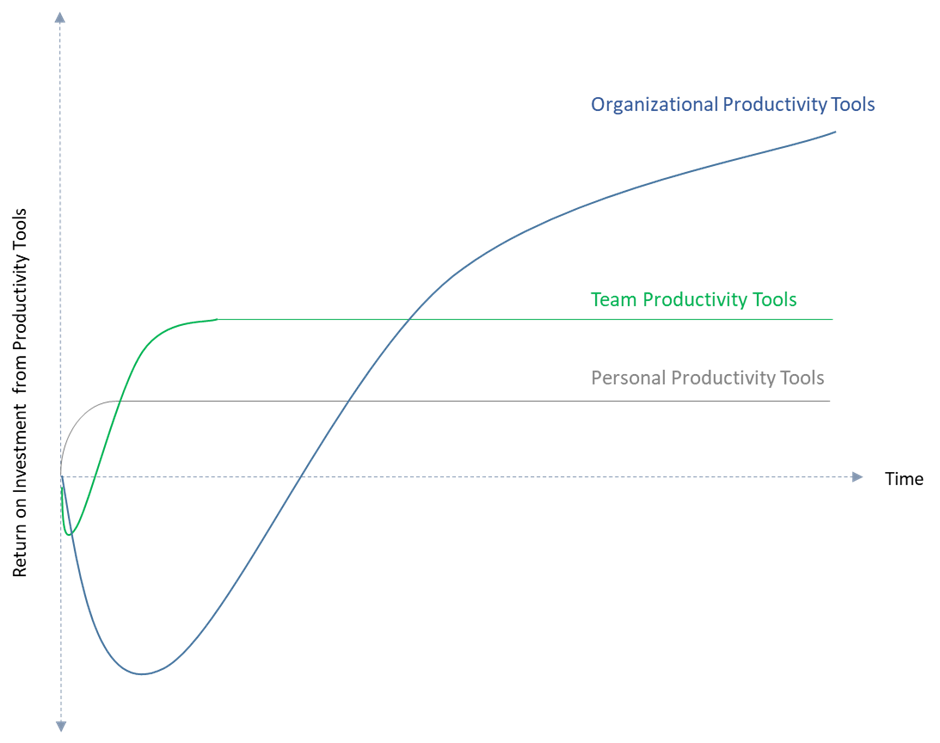
What is Productivity?
Productivity is the cornerstone of business success. It refers to the efficiency of an organization in producing goods or services. Productivity gains can lead to cost savings, increased revenue, and greater profitability. In recent years, artificial intelligence (AI) has emerged as a powerful tool for enhancing productivity. According to a report by Accenture, AI can increase labor productivity by up to 40%. In this article, we explore the role of AI in boosting productivity and how it is shaping the future of work.
The Role of AI in Enhancing Productivity
AI can automate repetitive and time-consuming tasks, freeing up human workers to focus on more complex and creative work. For example, chatbots can be used to handle customer queries, reducing the workload on customer service representatives. AI can also help improve decision-making by providing real-time insights and predictive analytics. For instance, machine learning algorithms can analyze large datasets to identify patterns and trends that can inform business strategy. According to a survey by Salesforce, 71% of business leaders believe AI will help them make better decisions.
Enhancing Personal Productivity
AI is revolutionizing personal productivity at work by automating tedious and repetitive tasks, augmenting human capabilities, and providing real-time insights and personalized recommendations. Here are some examples of the latest tools and technologies that can enhance personal productivity at work:
Automating administrative tasks: AI-powered virtual assistants such as Google Assistant, Siri, and Alexa can help automate administrative tasks such as scheduling meetings, setting reminders, and responding to emails. These assistants can be integrated with calendars, emails, and messaging apps to provide a seamless experience.
Providing personalized recommendations: AI-powered tools like Focus@Will and RescueTime can analyze data from various sources, such as emails, calendars, and task lists, to provide personalized recommendations on how to optimize time and resources. For example, Focus@Will can suggest background music that can help users focus better, while RescueTime can provide detailed reports on how time is being spent.
Enhancing decision-making: AI-powered platforms like IBM Watson Analytics and Salesforce Einstein can provide real-time insights and predictive analytics to support decision-making. These platforms can analyze large datasets to identify patterns and trends that can inform business strategy.
Streamlining workflows: AI-powered tools like Zapier and IFTTT can optimize workflows by automating processes, identifying bottlenecks, and providing recommendations for improvements. For example, Zapier can automatically create tasks in project management tools when an email is received, while IFTTT can automatically send reminders when a task is due.
Here are some notable apps that use generative AI-based apps that can enhance personal productivity, depending on your profession.
Increasing Team Productivity
Augmenting collaboration: AI-powered tools like Microsoft Teams and Slack can improve collaboration by providing features such as real-time messaging, video conferencing, and file sharing. These tools can also integrate with other productivity tools, such as project management and calendar apps, to streamline workflows and keep everyone on the same page.
Providing real-time insights: AI can analyze team data, such as project progress and team communication, to provide real-time insights and feedback. For example, AI-powered tools like Monday.com and Asana can provide visual representations of project progress, identifying bottlenecks and highlighting areas that need attention.
Improving communication: AI-powered chatbots like Talla and Zoom.ai can help improve communication and collaboration among team members by providing instant support and feedback. These chatbots can also assist with language translation, making it easier to communicate with colleagues from different parts of the world.
Increasing Organizational Productivity
Digital platforms powered by artificial intelligence are already playing a significant role in providing tactical and competitive advantages to early adopters. Enormous boosts in productivity are by-products of breaking down the digital silos created by piecemeal digital transformation across the organization.
Today's digital platforms excel in three key areas:
- Digitizing the value chain and simplifying and automating cross-functional processes.
- Integrating with customers and suppliers, enabling real-time connectivity, and delivering best-in-class experiences.
- Predicting the future outcome of various processes and providing curated and actionable digital nudges to the right stakeholder groups.
Implementing large-scale digital and analytical platforms requires significant organizational investment and stakeholder involvement. However, the ROI becomes prominent only when the platform has enough data (structured, syndicated, or user feedback) to learn from.
While enabling personal and team productivity tools may help firms level the playing field, the right goal-setting and usage of organization-wide productivity platforms help their makers come out ahead in the game.

Privacy and Ethical Considerations
While AI offers significant productivity gains, it also presents several challenges and risks. One of the main concerns is the potential for job displacement. According to a report by McKinsey, up to 375 million workers may need to switch occupational categories by 2030 due to automation. There is also the risk of bias in AI algorithms, which can perpetuate existing inequalities in the workplace. For example, facial recognition technology has been shown to have higher error rates for people with darker skin tones.
Conclusion
AI is likely to continue transforming the way we work. According to a report by Gartner, by 2024, 69% of routine work currently done by managers will be automated. This will free up workers to focus on higher-value tasks such as strategic planning and creative problem-solving. However, there are also concerns that AI may exacerbate inequality if not implemented responsibly.
AI presents significant opportunities for enhancing productivity in the workplace. However, it also presents challenges and risks that need to be addressed. To fully realize the benefits of AI, companies need to invest in infrastructure, data management, and employee training. They also need to ensure that they have robust data privacy policies in place. The future of work is likely to be shaped by AI, and companies that embrace this technology will be better positioned to compete in a rapidly changing business landscape.
In our next blog, we’ll explore how to incentivize the development of strong AI in the enterprise. Until then, enjoy boosting your productivity through AI.